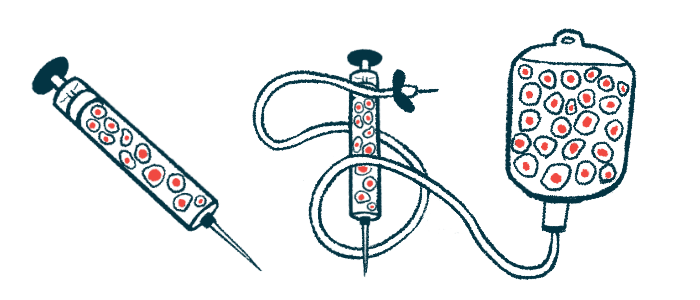Immune-suppressing Cells Boost JadiCells’ Therapeutic Effects in Mice
Written by |

Treatment with immune-suppressing myeloid-derived suppressor cells alongside JadiCell — an investigational stem cell therapy from Therapeutic Solutions International (TSOI) for chronic obstructive pulmonary disease (COPD) — led to more significant reductions in lung damage in mice compared with either treatment alone.
Using them together also enhanced pulmonary regeneration in the mouse model, data showed.
Investigators similarly found that Leukine, an approved medication for leukemia and other conditions that boosts immune cell growth, also increases the body’s production of myeloid-derived suppressor cells and enhanced JadiCells’ therapeutic effects.
Based on these data, TSOI filed a patent for the use of myeloid-derived suppressor cells with JadiCell stem cell therapy for the treatment of COPD. A patent request covering the use of JadiCell in COPD alone was filed last year.
“As a medical doctor that routinely sees the devastation caused by COPD, I am extremely excited about the possibility of curing this disease,” James Veltmeyer, MD, TSOI’s chief medical officer, said in a press release.
“But in order to even begin talking about cures, we need to realize that a pathology as complex as COPD will not be cured by a ‘magic bullet.’ Therefore, we are always searching for new ways to continually increase the efficacy of our approaches,” Veltmeyer said.
JadiCells are a type of mesenchymal stem cell (MSC) derived from the lining of the umbilical cord. MSCs are adult stem cells that can give rise to many different cell types in the body, and have shown potent anti-inflammatory, neuroprotective, and regenerative properties.
Preclinical studies demonstrated that JadiCells can lessen lung injury and reduce inflammation in a mouse model of emphysema, a severe form of COPD. The effects of JadiCells were superior to stem cells from other sources, including those derived from bone marrow or fatty tissue called adipose.
More recent findings also suggested that JadiCells were able to preserve lung function and increase the production of “repair cells” in mice with inflammation-induced injury.
Myeloid-derived suppressor cells are a diverse group of immune cells produced in the body’s bone marrow. These cells differ from other immune cell types in that they are strongly involved in immunosuppression, or the dampening of immune responses, in contrast to the immune-activating properties of other cell types.
Leukine is an approved medication used to accelerate the production of white blood cells in the bone marrow in conditions in which people may be particularly susceptible to infections, such as during chemotherapy or after a bone marrow transplant.
TSOI’s new data suggest that either direct or indirect (via Leukine) enhancement of these suppressor cells might boost the therapeutic effects of the JadiCell stem cell therapy for people with COPD.
“These recent data are a result of our multidisciplinary approach to chronic diseases,” said Timothy Dixon, TSOI’s president and CEO, and co-inventor on the patent.
“Since there is an immunological mechanism at play here, we are currently in discussion with several immunotherapy stakeholders for collaborations and partnerships,” Dixon added.
TSOI announced recently that it submitted an investigational new drug application (IND) to the U.S. Food and Drug Administration (FDA) to gain authorization to conduct a Phase 1 trial of JadiCell in 10 people with advanced COPD.
Meanwhile, JadiCell is under Phase 3 development for use in people with COVID-19, and an IND was recently cleared to test the stem cell treatment in patients with chronic traumatic encephalopathy (CTE), a condition in which head trauma leads to brain degeneration.






